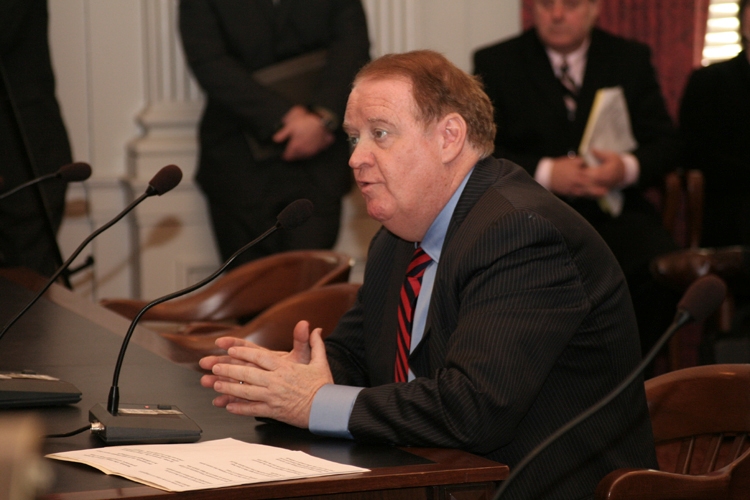
Major Overhauls Proposed for Legislative Ethics Committee, Ethics Training
TRENTON – The Senate State Government Committee today voted 5 to 0 to approve a bipartisan ethics reform bill sponsored by Senate President Richard J. Codey and Senate Minority Leader Tom Kean, Jr. that would, most notably, prohibit current legislators from serving on a key panel that investigates ethical complaints against members of the legislature and staff.
“This bill marks a step in the right direction for the 213th Legislature,” said Sen. Codey (D-Essex). “These reforms will allow us to move forward, in a bipartisan manner, with changes that the public has been clamoring for, changes that will prohibit conflicts of interest and create greater efficiency and oversight to investigate ethical complaints.”
“This shows that, with bipartisan cooperation, our state can achieve the ethics reforms the public demands and deserves,” Sen. Kean said. “The Republican caucus will continue to press for stronger reform measures in this session.”
The bill – S1442 – would amend the state Conflicts of Interest Law with respect to the membership and operation of the Joint Legislative Committee on Ethical Standards, requiring that the committee be comprised solely of members of the general public.
The bill also cuts the size of the committee in half, from 16 to eight and stipulates that no more than two members may be former legislators. The bill calls for the majority and minority leaders of both legislative houses to appoint two members each.
Furthermore, the bill clarifies the procedures for appointing a Chair and Vice Chair, a process that has led to stalemates and inaction in recent years when committee members could not reach a consensus on electing leadership. Under the proposed legislation, the Chair would be appointed jointly by the Senate President and Assembly Speaker and the Vice Chair would be appointed jointly by the Senate and Assembly minority leaders. The bill also stipulates that the Chair and the Vice chair may not be affiliated with the same political party.
The bill also prohibits complaints from being filed within 90 days of an election to avoid manipulation of the process for political purposes. However, the bill will require that any complaint filed within seven days immediately following an election be expedited.
Furthermore, the bill also gives the committee the authority, when reviewing a complaint, to require the legislator under investigation to submit detailed financial disclosures beyond what is presently required to be disclosed by law. This additional information would remain confidential unless at least three-fourths of the committee decide that the information should be made public.
The legislation also strengthens ethics training for legislators, requiring that in addition to the annual online tutorial currently required, members also must attend a yearly in-person ethics training session.
In limiting the make-up of the committee to public members, the following shall be prohibited from serving on the committee: any current lobbyist or governmental affairs agents, any full-time state employees or any officer or director of any entity that is required to file a statement with the Election Law Enforcement Commission. Additionally, lobbyists and governmental affairs agents will be prohibited from serving on the committee for one year following the cessation of all lobbying or government affairs activities.
The terms of the bill would go into effect 30 days after enactment. The legislation now heads to the full Senate for a vote.
# # #

